Keynote Speakers
Bruce Rittmann
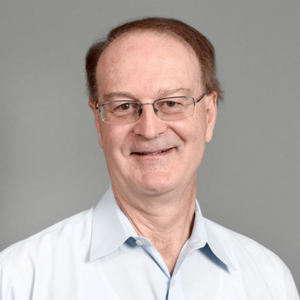
Dr. Bruce E. Rittmann is Regents' Professor of Environmental Engineering and Director of the Biodesign Swette Center for Environmental Biotechnology at Arizona State University. His research focuses on the science and engineering needed to “manage microbial communities to provide services to society.” Dr. Rittmann is a member of the National Academy of Engineering; a Fellow of AAAS, WEF, IWA, AEESP, and NAI; and a Distinguished Member of ASCE. Dr. Rittmann was awarded the first Clarke Prize for Outstanding Achievements in Water Science and Technology from the NWRI, the Walter Huber Research Prize and the Simon Freese Award from ASCE, the G.M. Fair Award from AAEES, and the Perry L. McCarty/AEESP Founders Award. He is the co-winner of the 2018 Stockholm Water Prize. Dr. Rittmann has published over 740 journal articles, books, and book chapters, and he has 17 patents.
Belinda Sturm
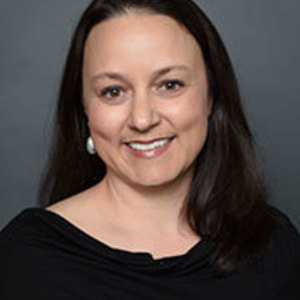
Dr. Belinda Sturm is a Professor in the Department of Civil, Environmental & Architectural Engineering at the University of Kansas. She also serves as an Associate Vice Chancellor for Research. Belinda earned her B.S. in Public Health from the University of North Carolina at Chapel Hill and her PhD in Civil Engineering and Geological Sciences from the University of Notre Dame. In 2012, the American Academy of Environmental Engineers awarded Belinda and KU an Excellence in Environmental Engineering honor award for her research on coupling nutrient removal with algae-mediated energy recovery. Belinda currently serves as Chair of the International Water Association’s USA National Committee Executive Board and as Vice-Chair of the Water Environment Federation’s Municipal Design Symposium.
Charles B. Bott
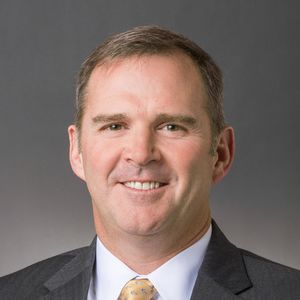
Dr. Charles B. Bott joined HRSD in 2009 and is the Director of Water Technology and Research. He manages technology innovation and R&D for HRSD’s sixteen wastewater treatment plants (249 MGD combined capacity). Dr. Bott is also an Adjunct Professor in the Departments of Civil and Environmental Engineering at Virginia Tech and Old Dominion University. He was formerly an Associate Professor in the Department of Civil and Environmental Engineering at the Virginia Military Institute (VMI) and a consulting engineer with Parsons Engineering Science. Dr. Bott has a BS in Civil Engineering from the Virginia Military Institute, a MS in Environmental Engineering from the Johns Hopkins University, and a Ph.D. in Civil and Environmental Engineering from Virginia Tech. He is a fellow of the Water Environment Federation, a Professional Engineer in Virginia, a Board Certified Environmental Engineer, and a licensed Wastewater Treatment Plant Operator – Virginia Class I. Charles’ biofilm interests include mainstream IFAS, mainstream polishing partial denitrification-anammox in MBBRs and deep bed filters, sidestream granular and MBBR partial nitritation-anammox, and ozone-biofiltration processes for potable reuse.
Caitlin Proctor
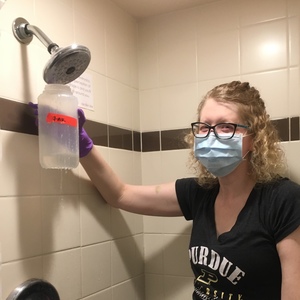
Dr. Caitlin Proctor is a soon to be Assistant Professor of Engineering at Purdue University, where she just finished a 2 year postdoctoral fellowship. She completed her PhD in Life Sciences at the Swiss Federal Institute of Aquatic Science and Technology through ETH Zurich. Caitlin’s research is at the nexus of civil engineering, molecular microbiology, and drinking water, with a major focus on the impact of biofilms on drinking water quality. Much of her research has centered on the ecology of showers. In her new lab, she will continue to explore the biofilm dynamics that can affect system functionality and public health.
Mark van Loosdrecht
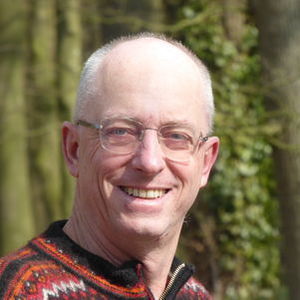
Dr. Mark van Loosdrecht is Professor in Environmental Biotechnology at Delft University of Technology,The Netherlands. His research is characterized by the combination of scientific understanding of complex systems and development of new processes. Dr. van Loosdrecht’s scientific interests are mainly related to biofilm processes, nutrient conversion processes and the role of storage polymers in microbial ecology. His research has resulted in several processes currently applied on full scale such as the Sharon process, Anammox process and Nereda process. Currently PHA, Kaumera and Vivianite recovery processes are in scale-up phases. He was Editor in Chief of Water Research (2010-2019). He obtained several prizes for his work, including the Lee Kuan Yew Singapore Water Prize, Stockholm Water prize, Spinoza Award, Simon Stevin Award and the IWA grand award. He is member of the Royal Dutch Academy of Arts and Sciences, the Dutch Academy of Engineering (AcTI) and the Chinese and USA National Academy of Engineering. He was awarded a knighthood in the order of the Dutch Lion and honorary doctorates from U-Gent and ETH-Zurich. He has published over 800 scientific papers, has 20 patents and has supervised over 60 PhD students.
Eveline Volcke
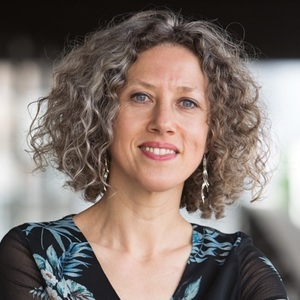
Dr. Eveline Volcke is a Professor and the founder and head of the research unit Biosystems Control (BioCo) at Ghent University. Eveline graduated as a Chemical Engineer (1999) and obtained a PhD in Environmental Technology (2006) from Ghent University. In 2007, she took up a EU Marie Curie fellowship at the Laboratory of Environmental Biotechnology, INRA, France. Her research is focused on efficient and sustainable process design and control, applying a combination of physical-based modeling and experimental techniques. The application domain concerns environmental technology, with a prime focus on biological wastewater treatment, besides other bioconversion processes. A vast expertise has been gathered concerning innovative nitrogen removal processes, granular sludge reactors, microbial population dynamics, and greenhouse gas emissions from wastewater treatment. Eveline is a Fellow of the International Water Association (IWA).
Per Henrik Nielsen
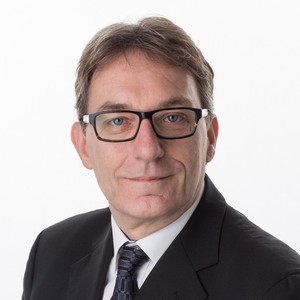
Mr. Per Henrik Nielsen, is a Project Director of Special Projects at VCS Denmark, the oldest and third largest water utility in Denmark. Mr. Nielsen brings more than 25 years of experience leading and participating in multi-disciplinary teams in a large number of sanitary infrastructure projects and general environmental projects. The work over the past years has been aiming at making the major treatment facilities energy producing and to prepare VCS Denmark for waste water treatment of the future, studying needs for system centralization and decentralization, adopting of the water resource recovery paradigm, increasing resiliency, and identifying technology gaps and developing corresponding applied research efforts. He was instrumental in making VCS the first Danish Water Research Foundation Subscriber in 2014 and from the beginning has been seeking active involvement in the Foundation’s activities, currently serving in their prestigious Research Council. He also helps coordinate and actively participates in VCS efforts of providing assistance to water utilities around the world in the strengthening of their technical and institutional capabilities.
Lutgarde Raskin
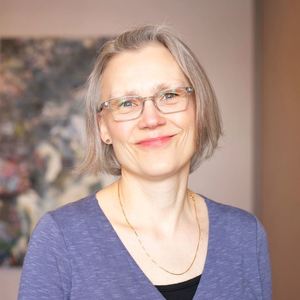
Lutgarde Raskin is the Vernon L. Snoeyink Distinguished University Professor of Environmental Engineering and the Altarum/ERIM Russell O'Neal Professor of Engineering at the University of Michigan (UM), where she has been a professor of Environmental Engineering since 2005. She currently serves as an Associate Dean for Academic Programs and Initiatives at the Rackham Graduate School. Before her UM appointment, she was a professor at the University of Illinois at Urbana-Champaign (UIUC) for 12 years. She received BS/MS degrees in Bioscience Engineering and Economics from the University of Leuven (KU Leuven, Belgium). Her PhD degree is in Environmental Engineering from UIUC. Raskin is globally recognized as an expert in microbial aspects of anaerobic waste treatment and drinking water treatment technologies. She is passionate about graduate education and has mentored approximately 20 postdocs and 100 graduate students, including 27 PhD students. She is an elected Fellow of the American Academy of Microbiology, the International Water Association, and the Water Environment Federation. Past honors include the University of Michigan Rackham Distinguished Graduate Mentor Award, the International Society for Microbial Ecology-International Water Association BioCluster Award, the Association of Environmental Engineering and Science Professors Frontier Award in Research, and the Water Research Foundation Paul L. Busch Award for Innovation in Applied Water Quality Research. She is an Associate Editor for Environmental Science & Technology and was the Association of Environmental Engineering and Science Professors Distinguished Lecturer in 2018-19.
Zhiguo Yuan AM
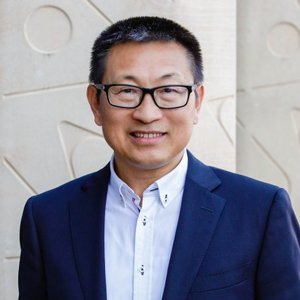
Prof Yuan received his PhD degree in aeronautical engineering in 1992 from Beijing University of Aeronautics and Astronautics, China. He changed research direction to wastewater management in 1994, when he took up a postdoctoral research fellow position at Ghent University, Belgium. He joined the Advanced Water Management Centre (AWMC) at The University of Queensland in 1998 and is currently the Director. His research focuses on development of innovative solutions for urban water management through effective integration of fundamental science and applied engineering. He has to date published ~450 fully refereed journal papers including a paper in Nature (2013) and Science (2014). He is the founder of three biotechnology businesses namely SeweX, Cloevis and Lodomat.
Maria Piculell
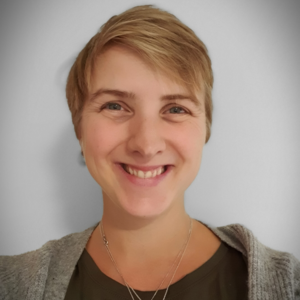
Dr. Maria Piculell is a process specialist in the AnoxKaldnes R&D team at Veolia Water Technologies, Sweden. She completed her MSc in Environmental Engineering at Lund University, Faculty of Engineering (LTH) in 2011, and started working at AnoxKaldnes the same year. In 2012, Maria started her PhD project at the Department of Chemical engineering, Water and Environmental engineering (Lund University). Her PhD, titled “New Dimensions of Moving Bed Biofilm Carriers - Influence of biofilm thickness and control possibilities”, was completed in 2016. Since then, Maria has continued to work on evolving the Moving Bed Biofilm Reactor technology and its different applications, focusing especially on understanding the impacts of different biofilm carrier designs and materials. In 2018, she was part of initiating a Swedish biofilm processes user group and in 2019, the Swedish Association for Water awarded Maria with the New Generation award. In 2020, Maria led the organization of the Swedish conference on “Biofilm Systems in Municipal Wastewater Treatment”, which attracted a large Nordic audience.